16 de noviembre 2018

Ortega Grants Chinese Company a Huge Mining Concession

PUBLICIDAD 1M
PUBLICIDAD 4D
PUBLICIDAD 5D
This athlete shed tears every day during the heat of the protests, when reading the news about those the regime had killed.
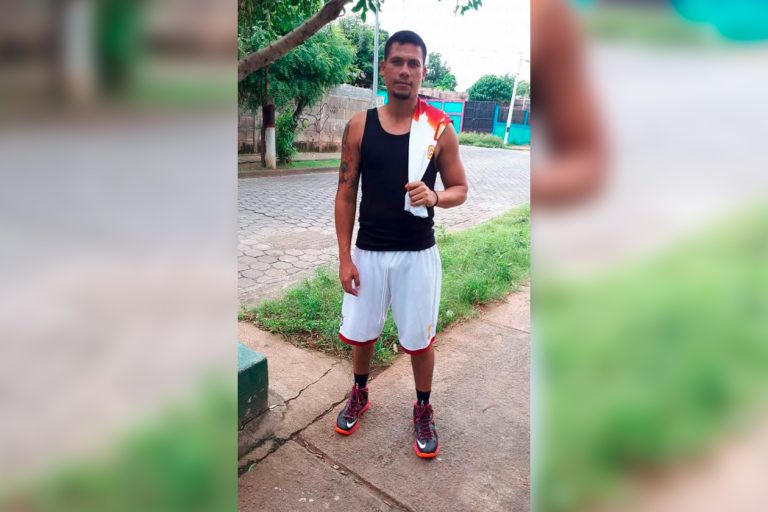
Carlos Silva Rodríguez likes sports and going to the gym. Photo: Niú
Carlos Silva Rodriguez lost his final game of basketball. Before the second quarter began, a Police patrol pulled up to the basketball court at the Luis Alfonso Velazquez Flores park where he and his team were playing against the Managua mayor’s office. Before being taken by the agents, he had said: “When Nicaragua wins, we’re going to change the name of this park”.
That day, he had gone to the game out of obligation. His sister, Elisa Silva Rodriguez, had warned him that going out on the street could be dangerous.
“They’re going around abducting the youth. You’re no kid, but you look like one”, his sister told him. “You’re making me even more nervous”, Carlos replied.
In the end, he decided to go. He’d founded the San Judas neighborhood team together with other residents. When he was promoted to manager of human resources for the shoe company where he worked, he began setting aside a portion of his salary to maintain the team. “He said that he preferred to see the kids playing sports, rather than standing on a corner using drugs”, Elisa says.
Carlos left for his match that day without imagining that he’d be jailed that very day, accused of a litany of crimes that all of the family agree are “unbelievable”.
A group of officers approached him and told him to get into the police pick-up. He didn’t put up any resistance. “He knew that there was no reason to arrest him, because he was innocent”, his sister declares.
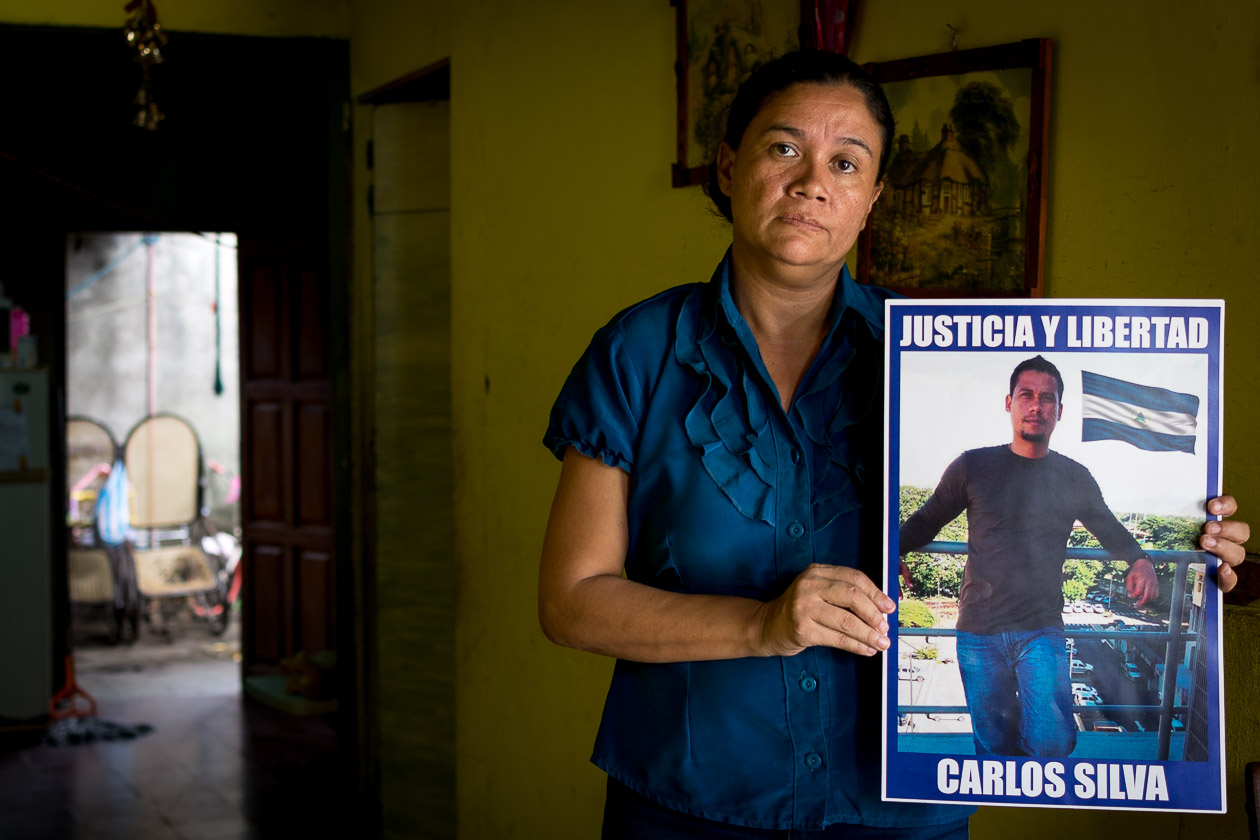
Elisa Silva Martinez was a militant member of the FSLN. Today she feels defrauded by the party. Photo: Franklin Villavicencio / Niu
Elisa Silva is angry. The party she believed in for years, voted for and was an active member of, has let her down. She’s angry because the government of Daniel Ortega, head of the FSLN, has abducted her brother. The government has accused Carlos of organizing one of the roadblocks, as well as working with one other to topple one of the metal “trees of life” – those metallic structures that were installed all over Managua, and that in the first days of the civic rebellion began to be torn down, one by one. Thirty of them were downed during that period by angry protestors who gathered at night to “log” the metal trees that had been the chosen city décor of Vice President Rosario Murillo. Nonetheless, Carlos’ family members affirm that Carlos hasn’t taken any of them down, nor has he been involved in the roadblocks.
“I feel a lot of resentment towards a party that I followed and with the authorities who I once elected”, Elisa added.
“True, he’s gone to marches. He’s demonstrated as one more citizen, but that’s not a crime”, his father Carlos Silva Grijalva asserts.
The metal tree that the Police claim Silva Rodriguez cut down “with the help of a chainsaw” is a white elephant that was located on the Rigoberto Lopez Perez roundabout. It was toppled during the night of May 11. An excited ruckus filled the street every time that one went down, since for over a decade they had been a symbol of Daniel Ortega’s regime. According to investigations from the independent media, each one was worth nearly US $25,000.
Carlos Silva’s father states that he couldn’t have been there at the roundabout that day, nor at that time. “It’s not credible that at 43 years old he’d be out on the streets at midnight on a weekday, knowing that he had to work”, he asserts.
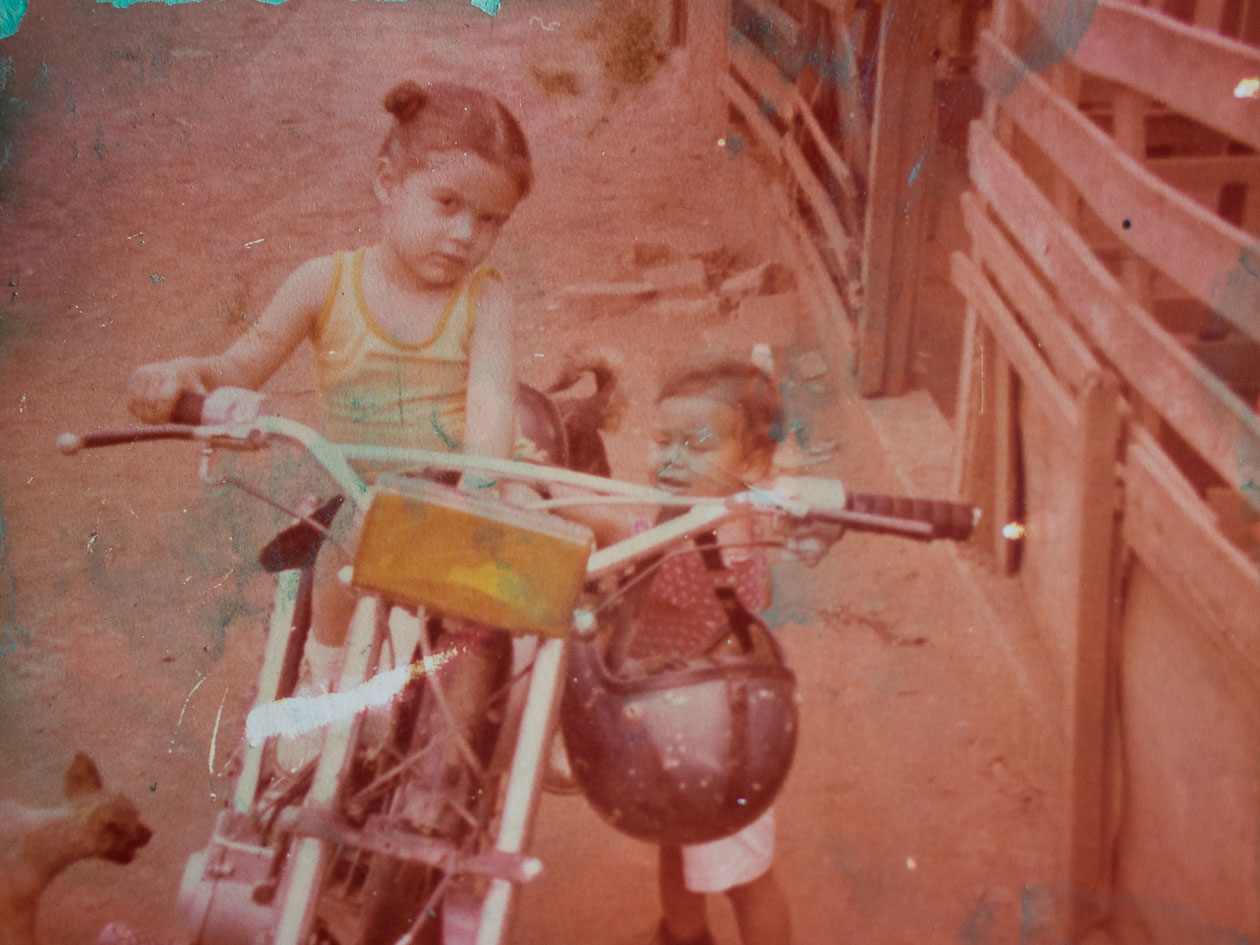
Elisa Silva comments that she used to defend her brother at school when he complained to her. She has a “stronger” character than he does. Courtesy photo / Niu
Carlos is also accused of intimidating the residents that live near him “with mortars and homemade firearms. However, as his sister explains, both have grown up fearful of fireworks and explosions. Moreover, “I can’t imagine my brother intimidating anyone. He’s always been quite passive. I was the one who defended him at school, because I’ve been the one with a strong character”, she emphasizes.
The police communique reads: “On May 11, 2018, at the Rigoberto Lopez Perez roundabout, Carlos and other criminals using ropes, gasoline, matches and a circular electric saw burned and destroyed Trees of Life.” Among the “evidence” presented by the authorities are “twelve white-colored light bulbs”.
“I know my brother. He can’t even hammer in a nail. He always focused on his academic career, on getting ahead at school. What need does he have to threaten people with mortars? He had a good job, earning thirty thousand cordobas (US $932), and he was a single father who did everything he could for his children”, Elisa adds. She’s visibly angry, and every time she speaks about the government her eyes well up.
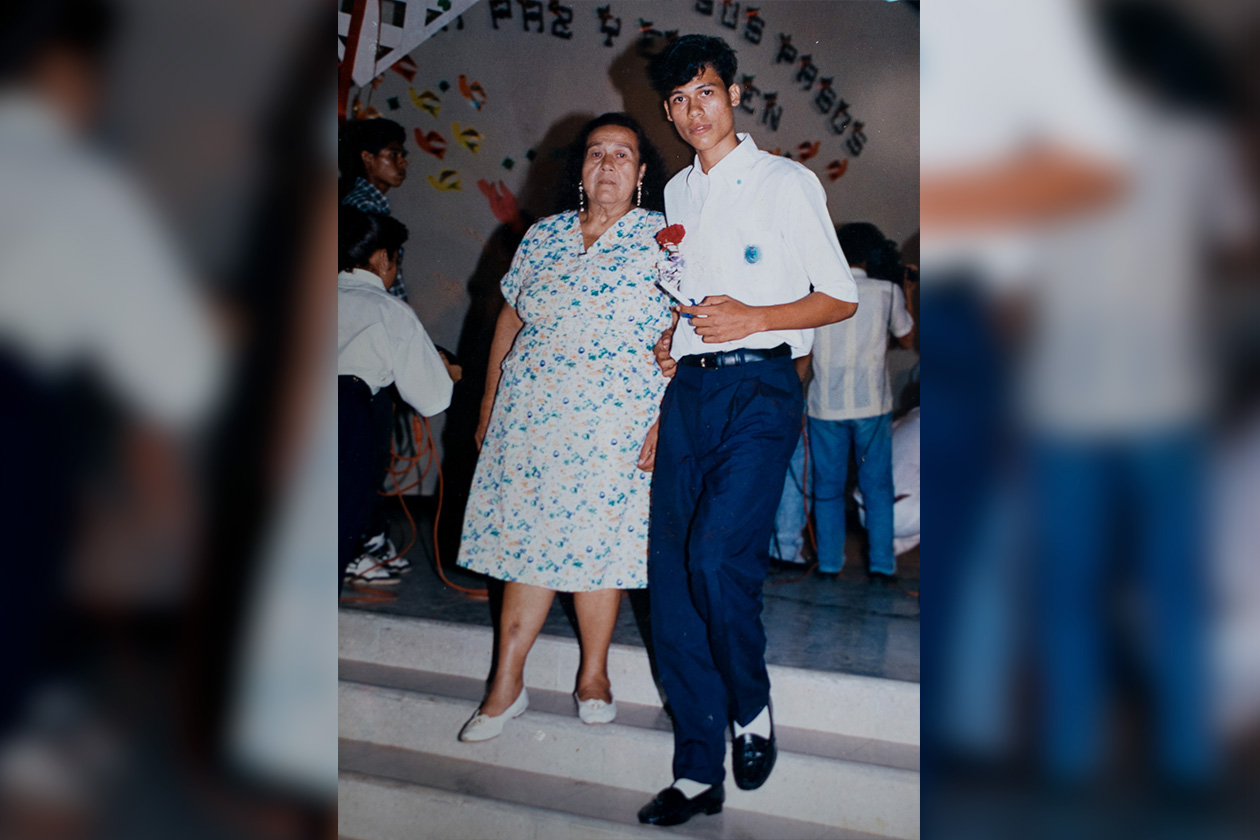
Maria Auxiliadora Rodriguez beside her son, Carlos Silva Rodriguez when he graduated from high school at the Mother of the Divine Pastor school. Photo: Franklin Villavicencio / Niu
Carlos Silva Rodriguez loves sports. When he was little, he was crazy about baseball, and later about basketball. He began to sink his first balls into the basket when he was in middle school.
Maria Auxiliadora Rodriguez, 63, describes her son as shy, a little reserved, and very disciplined. She didn’t see her son for 26 days, from the time he was abducted in the park until the penal authorities finally allowed her a visit. Carlos was concerned chiefly about his two children – how they were and who was looking after them. He also asked about his dog, “Lio Silva”, because he was part of the family. “That animal loves him. [Carlos] told us: ‘you know where I am, but he (the dog) doesn’t know where I am, and that hurts’”.
“No one recruited Carlos. He got involved by himself”, his father says. It was a common sight to see him in the evenings, after work, banging the pots as a form of protest against the repression of Daniel Ortega’s government. He called himself apolitical and said, like all the “blue and white” citizens, that Nicaraguan politics urgently needed a changing of the guard.
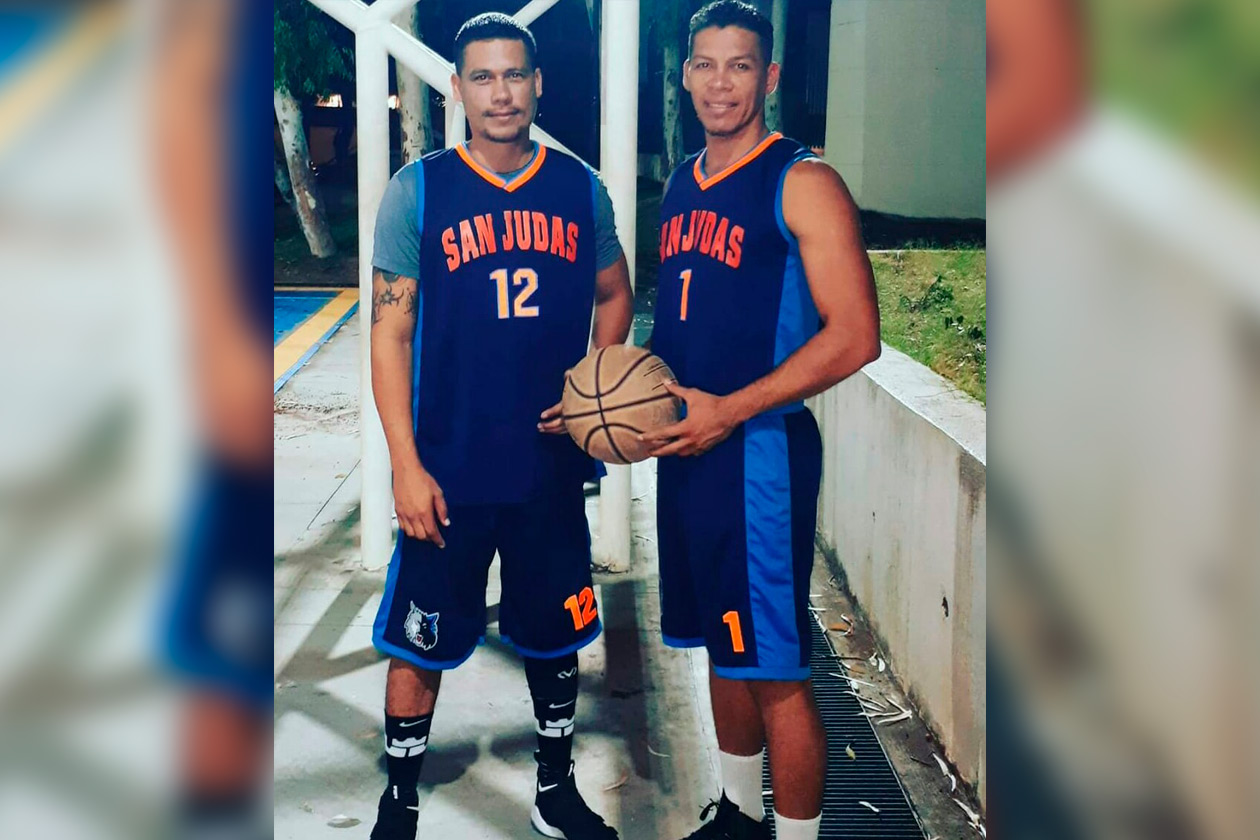
From the time he was little, Carlos loved sports. He had founded a local team in his neighborhood of San Judas. Courtesy photo / Niu.
One of the moments that marked him most in the first months of protests was the death of Alvaro Conrado, who was only fifteen when he was killed on April 20 by a bullet to the throat. That day, Carlos Silva cried while watching the images transmitted by the media.
“With each death, he’d grab his pot and go out onto the sidewalk to bang them, or he’d put up his flag,” his father recalls. “He kept a count of the dead, one by one and he’d cry for them as if they were his children”, his sister recalls.
Vladimir Miranda is Carlos’ friend and lawyer. He states that at the beginning of the preliminary hearings, two witnesses supposedly identified Carlos as one of two people who engineered the downing of the metal tree. To Miranda, that’s one of the inconsistencies in the trial.
The lawyer believes that “in that kind of ruckus”, it would be impossible to distinguish and recall the people who took those structures down. The “logging”, as it’s popularly known, of the metal trees was done during the night; hundreds of people would gather to watch them fall, jumping and screaming when they did. When they hit the ground, people would mob around, grabbing the colored bulbs that adorned them.
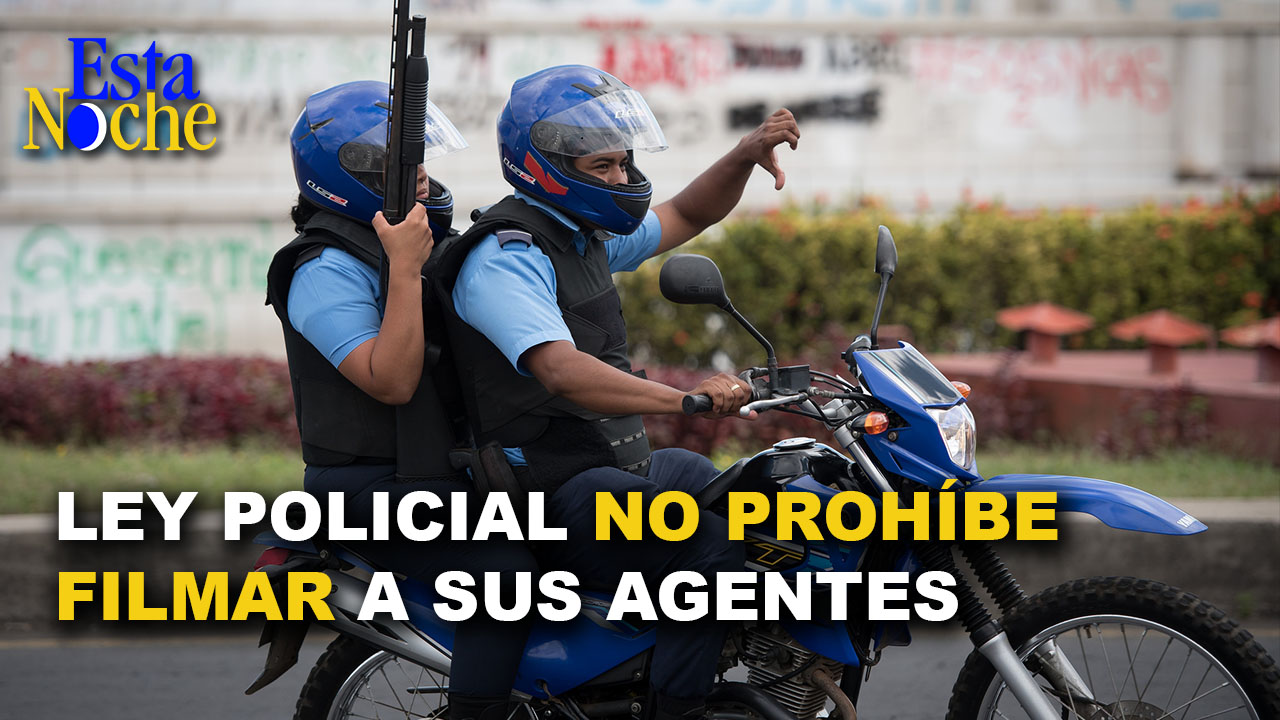
On September fourth, Carlos Silva Rodriguez was presented by the National Police. Photo from El 19 Digital.
Another supposed piece of evidence that the National Police have presented is a photo where Silva appears standing on a fallen tree of life. According to this family members, it was taken several weeks after it was knocked down. Elisa Silva relates that he was doing an errand in the area, paused by the tree, and decided to immortalize the moment. Nonetheless, the authorities want to use this as proof of his guilt, and in this way “close the case” as his lawyer says.
When Carlos Silva Grijalva recalls his actions as a combatant during the Sandinista Revolution, he feels a sharp sense of letdown. He fought on the combat front known as Edgard Lang; “I fought beside Eden [Pastora],” he comments. When Carlos Silva Rodriguez and his sister were little, their father had to leave them with their grandparents, since he “had a commitment to uphold with the revolution”. He went to the countryside for five months with the National Literacy Campaign that the Sandinista government was organizing.
Today, he’s frustrated that so much dedication still didn’t make the regime think twice about taking away the son of a former combatant. “I purged my own militancy. In those days, the militancy we had was of the flesh, not like the militancy they award today with that card”.
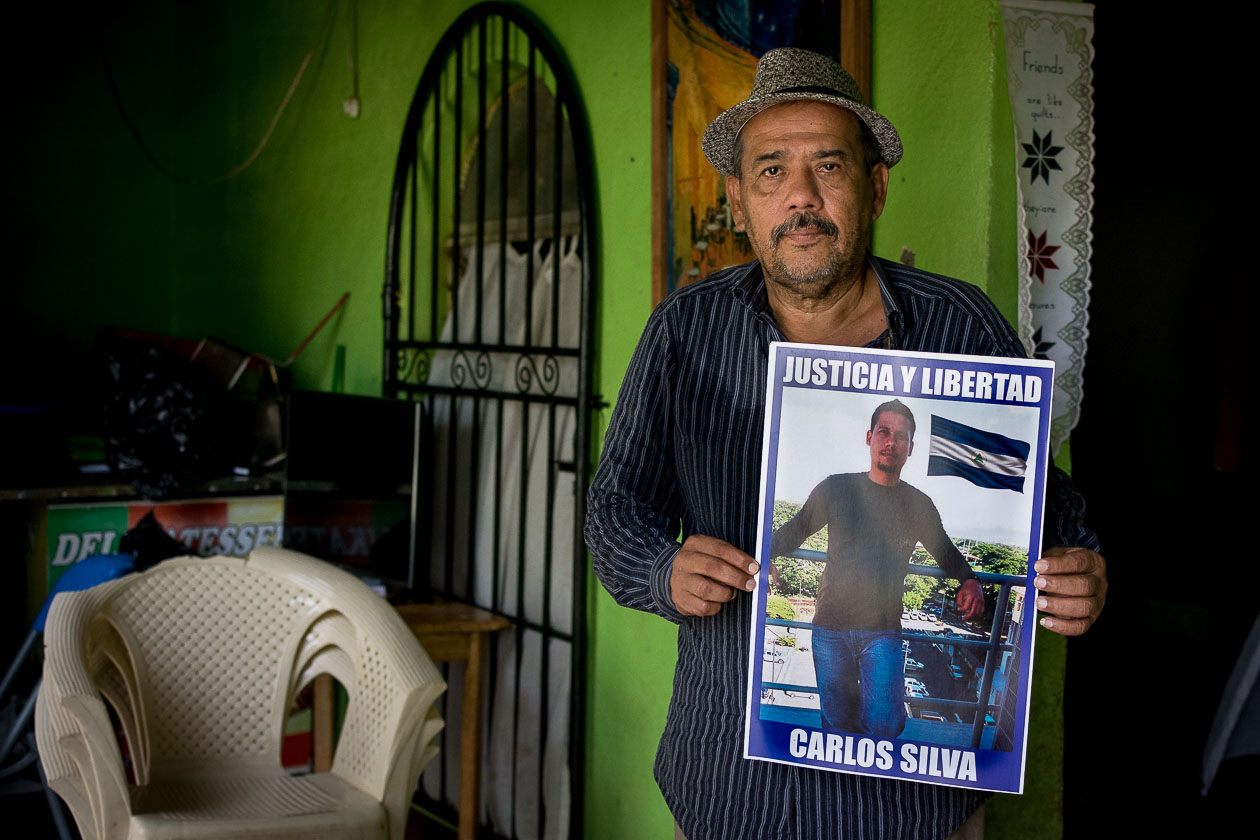
In his youth, Carlos Silva Grijalva was a Sandinista combatant. Now he’s fighting for his son’s freedom. Photo: Franklin Villavicencio / Niu.
Carlos Silva Grijalva is back on the streets today, but he’s not carrying a rifle. He’s fighting by carrying the face of his son on a poster during all of the marches held in Managua, marches opposing the political project of which he was a part for so many years.
On September 17, in one of the marches held in Managua for the liberation of the political prisoners he shouted a slogan that captured the headlines: “Leave us in peace, Daniel! The only weapon we have is a demand to free the political prisoners. Stop the repression, Daniel!” he screamed at the cameras. At that time, his son had already been in jail for a month.
“Yes, my son went to the marches. He loved going to the marches. He loved expressing his love for Nicaragua. He had no weapons, he wasn’t staging a coup or anything like that. He merely shouted ‘Long live a free Nicaragua!’ or ‘Free country and live!’ Who doesn’t want a free country to live in?” his father concludes.
Archivado como:
PUBLICIDAD 3M
Periodista nicaragüense con tres años de trayectoria en cobertura de temas culturales y derechos humanos. Ganador del Premio Pedro Joaquín Chamorro a la Excelencia Periodística.
PUBLICIDAD 3D